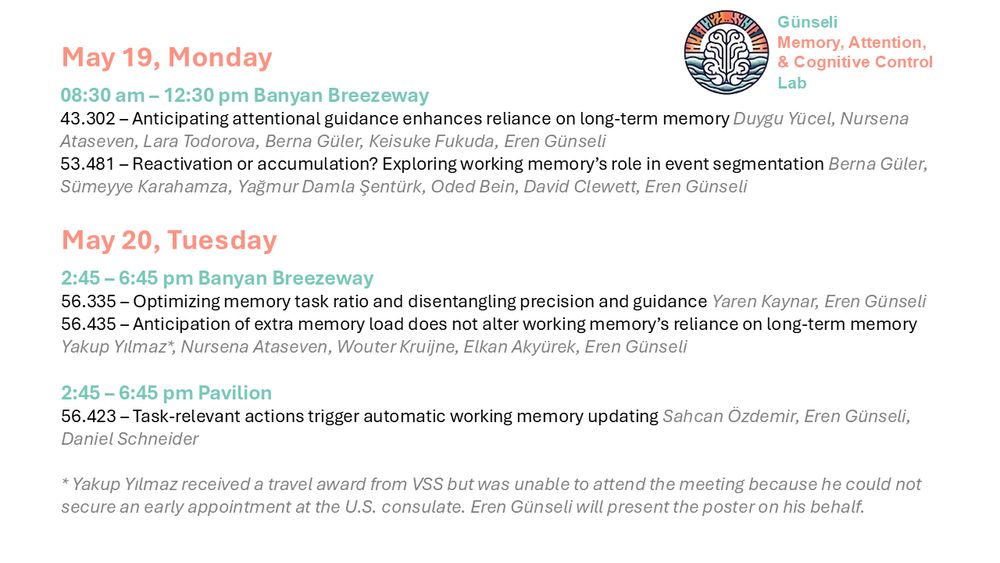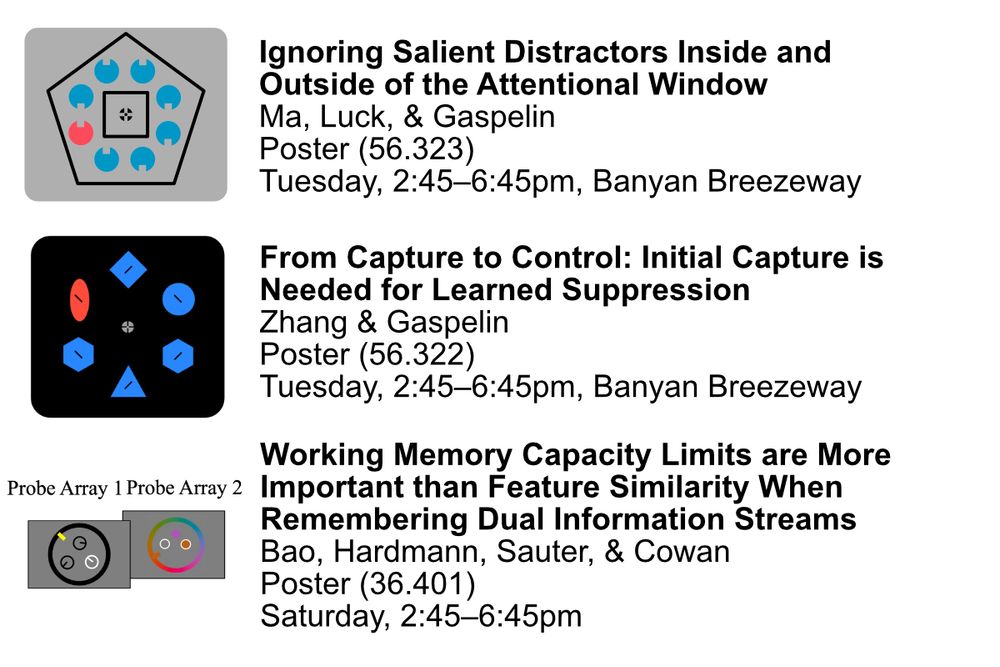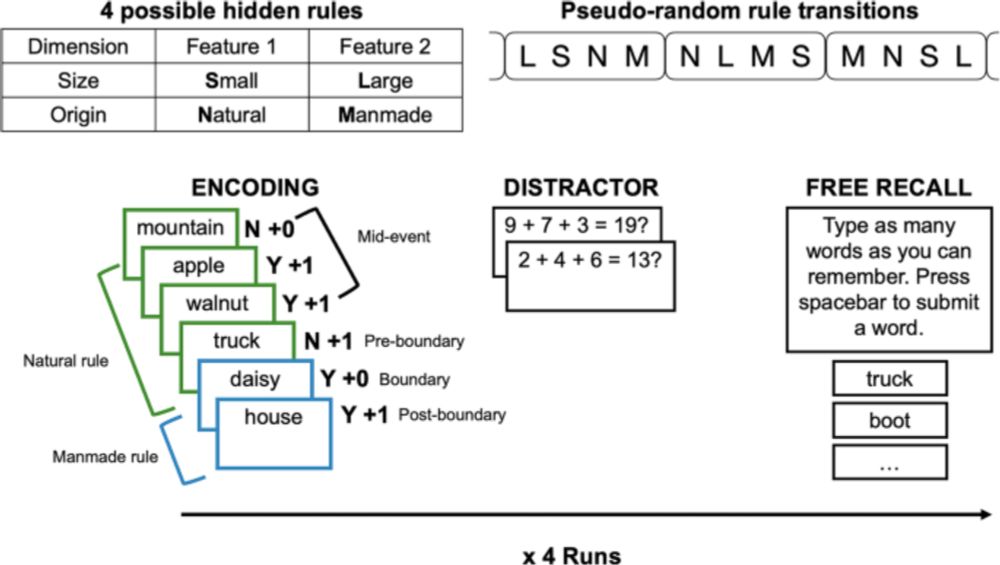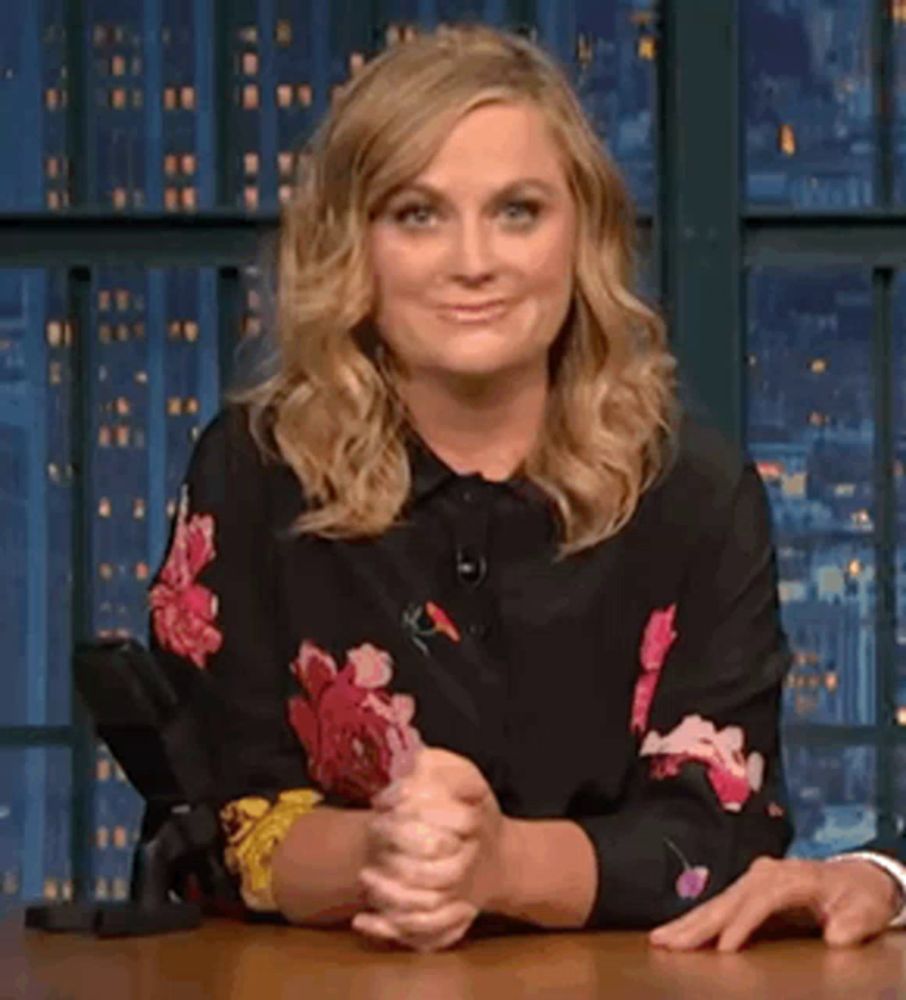Wake up. Make breakfast. Do email. Watch a murder. Go to a party for a 5 year old. Laugh with my daughter. See a different angle of that murder. Hear govt officials slander the victim. Play Barbies with my kid. Feed her dinner. Tear up at that victim reading last honors to a vet. Put kid to bed. USA
25.01.2026 04:43 — 👍 7011 🔁 1436 💬 75 📌 51

We should no longer trust data collected on MTurk
link.springer.com/article/10.3...
My guess is that other online data is going to drop in quality due to LLMs. This is going to be an existential crisis for the behavioral sciences.
08.01.2026 20:26 — 👍 121 🔁 58 💬 10 📌 9
The dictionary feels like I'm just here for the
01.01.2026 19:07 — 👍 1 🔁 0 💬 0 📌 0
Great opportunity for PhD applicants this year!
03.12.2025 21:43 — 👍 4 🔁 3 💬 0 📌 0
Interested in mind wandering, aging, and individual differences? Check out our new preprint! A fun collab with @cathyzhang.bsky.social Maddie Valdez, @wouterkool.bsky.social and Julie Bugg
27.11.2025 00:31 — 👍 7 🔁 2 💬 0 📌 0
Are the correlates of mind wandering consistent across younger and older adults?: https://osf.io/jvyr6
25.11.2025 22:15 — 👍 0 🔁 1 💬 0 📌 1

Thrilled that my poster on our new preprint won 2nd place at the Society for Judgment and Decision Making (@sjdm-tweets.bsky.social) conference!
Read the full paper here: osf.io/preprints/ps...
26.11.2025 03:00 — 👍 14 🔁 2 💬 1 📌 0
So proud of my grad student @ltreiman.bsky.social on winning 2nd place in the Best Poster Award at SJDM @sjdm-tweets.bsky.social 🎉! In a preprint of this work, she demonstrates how sequential comparisons and choice-induced preferences reveal two distinct pathways to the decoy effect.
24.11.2025 16:26 — 👍 10 🔁 1 💬 0 📌 0
Check out @theazalabak.bsky.social's cool new paper on model-based planning during foraging. She's applying for grad school this season, so keep your eyes out!
24.11.2025 16:16 — 👍 9 🔁 4 💬 0 📌 0

🚀 We are hiring! 🚀
🔍 Join us as a Postdoctoral Researcher (fully-funded) at the Helmholtz Institute for Human-Centered AI in Munich.
03.11.2025 10:24 — 👍 33 🔁 27 💬 1 📌 6
Bonus: Lauren just put out her paper on the decoy effect. It involves a preregistered behavioral experiment and computational modeling! cdmlab.wustl.edu/papers/TreimanKool_DecoyPreprint.pdf
22.11.2025 18:55 — 👍 0 🔁 0 💬 0 📌 0

Two more posters from my group at Psychonomics and SJDM. This evening, @duyguyucel.bsky.social will present some brand new work on multidimensional reinforcement learning, and tomorrow morning @ltreiman.bsky.social will present her work on choice-induced preference in the decoy effect.
22.11.2025 18:53 — 👍 8 🔁 2 💬 1 📌 0
Excited to welcome #psynom25 to Denver later this week! A couple travel tips ⛰️🌇
1) It's high altitude and dry here, DRINK WATER, take it easy your first day in!
2) From the airport, save $/emissions by taking the light rail 🚈 to Union Station, then rideshare/25min walk to the Sheraton hotel 1/
18.11.2025 03:11 — 👍 14 🔁 3 💬 1 📌 0
I'm excited to co-chair an #SfN2025 nanosymposium with the esteemed @neuronush.bsky.social on intracranial and behavioral readouts of neuromodulation for psychiatric symptoms!
NANO048: "Human Intracranial Recordings: Cognitive and Clinical Science"
Wed. Nov. 19 from 8-10am (🙃)
Room 23A
17.11.2025 19:17 — 👍 12 🔁 2 💬 1 📌 0

If you are at #SfN25, be sure to check out @davideghez.bsky.social's latest work on using EEG to decode the regulation of multidimensional control tomorrow morning. We're dropping the preprint tomorrow as well!
17.11.2025 04:55 — 👍 6 🔁 0 💬 0 📌 0

Obituary – Jonathan Smallwood
Jonny Smallwood @themindwanders.bsky.social was a beloved friend and mentor. He was taken from us too soon. His was a beautiful mind who understood the beauty of minds. As ever before, his kind voice guides me and his work will continue. We miss you Jonny. www.cbs.mpg.de/news/obituar...
13.11.2025 15:19 — 👍 103 🔁 31 💬 15 📌 8
Apply - Interfolio
{{$ctrl.$state.data.pageTitle}} - Apply - Interfolio
We’re hiring!
@sucholutsky.bsky.social and I are seeking a postdoc and RA for a project on trust in AI systems with folks at NYU, Princeton, BU, and Cornell
Positions open until filled. Apply soon! Please share 🔁
postdoc: apply.interfolio.com/175495
RA: apply.interfolio.com/175497
13.10.2025 18:06 — 👍 25 🔁 19 💬 1 📌 0
Come work with us! @princetonneuro.bsky.social and the Department of Psychology at Princeton University are searching for a tenure-track Assistant Professor in the area of human cognitive neuroscience, to be hired jointly in Psychology and Neuroscience: puwebp.princeton.edu/AcadHire/app...
13.08.2025 16:57 — 👍 69 🔁 64 💬 2 📌 0

Postdoc Fellows
The CTCN funds a cohort of outstanding Postdoctoral Fellows to work at the interface between theoretical and experimental labs and help forge new collaborations. Application deadline August 1st, 20…
The Center for Theoretical and Computational Neuroscience at WashU is recruiting postdoctoral fellows. The Center offers a unique opportunity to craft a transdisciplinary research program with an unusual degree of independence.
ctcn.wustl.edu/postdoc-fell...
12.07.2025 01:39 — 👍 13 🔁 12 💬 0 📌 2

Dear #VSS2025 attendees! Our lab will be presenting 5 posters over the next two days. We’re excited to share our work: Come visit us!
18.05.2025 21:39 — 👍 7 🔁 2 💬 3 📌 1

Come see our VSS presentations!
18.05.2025 17:43 — 👍 4 🔁 1 💬 0 📌 0
Despite the world being on fire, I can't help but be thrilled to announce that I'll be starting as an Assistant Professor in the Cognitive Science Program at Dartmouth in Fall '26. I'll be recruiting grad students this upcoming cycle—get in touch if you're interested!
07.05.2025 22:08 — 👍 143 🔁 24 💬 17 📌 4
Check out our new study by @atabk.bsky.social! He tweaked a word list memory task to have hidden rules at encoding, which shifted and created “event boundaries.” People recalled pre-boundary words more, and post-boundary words less. Other fun bits in the paper include a reinforcement learning model!
28.04.2025 20:01 — 👍 41 🔁 10 💬 1 📌 0
Model-based planning in structured foraging environments: https://osf.io/8z3qv
25.04.2025 22:42 — 👍 7 🔁 2 💬 0 📌 0
I dunno! In the paper, the link to the OSF is described as "containing more detailed information", but only has a vague description of the research question and it lists several questionnaires, roughly half of which do not get reported in the paper.
18.04.2025 18:41 — 👍 1 🔁 0 💬 1 📌 0
Yes, they did. I am considering emailing the editor to restate that I think this misrepresentation should be a serious enough violation to qualify for rejection.
18.04.2025 16:25 — 👍 2 🔁 0 💬 1 📌 0
Cognitive neuroscience professor, sustainability advocate, Columbus Crew fan. Opinions my own. He/him
Studying cognitive control at Brown University & RIKEN CBS. Incoming Assistant Professor at the University of Maryland (starting 2026 Fall). Almost always failing to behave adaptively — but trying.
Professor in Psychology at Trinity College Dublin. Here for less gross twitter, less boring mastodon. www.gillanlab.com
Sleep researcher / Neuroscientist / Psychologist
At the Centre of Sleep and Cognition, National University of Singapore
Postdoc at RWTH Aachen, Psychometrics of ILD and cognition. DSEM.
Cognitive Neuroscientist @ Harvard, AI Researcher @ Motional
Models of human & robot decision making in complex environments, including video games and urban driving. https://www.momchiltomov.com/
Building AI products that help us grow.
Computational cognitive scientist
Assoc Professor at Hebrew University
sites.google.com/site/eldareran
Asst. Prof of Psych & Brain @ WashU| former postdoc @ MIT BCS & PhD @ UofToronto | Sustained & Selective Attention, Learning, Episodic Memory, Development, Socioeconomic Status | Environment
Social psychologist at Ohio University studying counterfactuals, regret, free will, nostalgia, and conspiratorial thinking. Star Trek nerd. Anti-fascist. Trying to do something kind every day.
https://qoto.org/@jerlich
Behavioral and Computational Neuroscientist
Group Leader at the Sainsbury Wellcome Centre, UCL
Associate Professor, Psychology @cornelluniversity.bsky.social. Researching thinking & reasoning, misinformation, social media, AI, belief, metacognition, B.S., and various other keywords. 🇨🇦
https://gordonpennycook.com/
Psych Prof at the University Warwick @warwickpsych.bsky.social
Elections and Data Analytics at CBS News | Princeton political science PhD
Enthusiast. Cognitive Psychologist.
Control, Attention, Memory, and Performance (CAMP) Lab at Berry College ( https://sites.google.com/view/jacksoncolvett/ )
(He/him/his)
EST. 1996 • Boston, Mass.
https://linktr.ee/dropkickmurphys
















